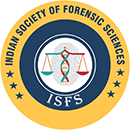Individual Membership
- Who can join and why
- 1. Forensic Science Students
- 2. Researchers
- 3. Lawyers & Legal Professionals
- 4. Police Personnel & Law Enforcement Officers
- 5. Academicians & Educators
- 6. Medical Professionals
- 7. Crime Scene Investigators (CSI)
- 8. Criminologists & Psychologists
- 9. Students from Allied Disciplines
- 10. Government & Intelligence Agency Personnel
- 11. Private Forensic Experts & Consultants
- 12. Judicial & Correctional Officers
Individual membership is open to professionals, students, and stakeholders across forensic science, law, medicine, psychology, and criminal justice. These individuals are often directly or indirectly involved in forensic investigation, education, policy-making, or legal processes.
Undergraduate, postgraduate, or diploma students pursuing forensic science or specialized fields like forensic biology, chemistry, toxicology, and allied field etc.
To gain exposure, network with professionals, attend workshops/seminars, and access career or research opportunities.
Scientists and scholars conducting research in forensic science, criminology, digital forensics, etc.
For collaboration, funding opportunities, publication support, and access to data or resources.
Advocates, legal consultants, and prosecutors working with forensic evidence in litigation. To understand forensic procedures better and stay updated on scientific developments affecting legal outcomes.
Police investigators, crime branch officers, or special task forces.
For professional development, forensic training, and better coordination with forensic experts during investigations.
Professors, lecturers, trainers in forensic science and allied subjects.
To connect with the professional community, get involved in curriculum development, and stay current with research.
Forensic pathologists, medical examiners, odonatologists, and physicians.
To exchange knowledge and understand how forensic science supports medico-legal work.
Professionals responsible for documenting and collecting physical evidence from crime scenes.
For training, updates on new tools/techniques, and collaboration.
Specialists in criminal behavior, profiling, victimology, and psychological evaluation.
To collaborate with forensic experts and law enforcement, and contribute to behavioral analysis.
Students of law, psychology, medicine, cyber security, or engineering with an interest in forensic applications.
For interdisciplinary exposure and future specialization
Officers from CBI, NIA, Intelligence Bureau, etc.
To engage with scientific advancements relevant to security and investigation.
Independent practitioners or retired experts offering forensic consultancy.
For networking, recognition, and professional visibility.
Judges, magistrates, prison officials, or probation officers.
To better understand forensic evidence, rehabilitation, and the criminal justice process.
Institutional Membership
- Benefits
- 🔹 Recognition as an official Institutional Member on the organization's website and publications
- 🔹 Use of membership logo for institutional branding and credibility
- 🔹 Enhanced visibility through featured profiles in newsletters, journals, or events
- 🔹 Access to a wide professional network of forensic, legal, and academic institutions
- 🔹 Opportunities for collaboration on research, training, and forensic casework
- 🔹 Free or discounted access to workshops, webinars, and training programs
- 🔹 Customized training sessions tailored to your organization's needs
- 🔹 Full access to forensic journals, reports, guidelines, and resource libraries
- 🔹 Priority updates on new forensic technologies, tools, and best practices
- 🔹 Eligibility to publish institutional research in affiliated journals and conferences
- 🔹 Support for student internships, faculty research, and joint projects
- 🔹 Discounted rates on conferences, exhibitions, and certification programs
- 🔹 Group membership discounts for partner institutions or departments
- 🔹 Involvement in policy advocacy, ethics committees, and standard-setting bodies
- 🔹 Nomination eligibility for advisory boards and expert panels
- 🔹 Participation in faculty development programs and certification modules
- 🔹 Access to student career support, job boards, and placement assistance
- 🔹 Invitation to annual Institutional Member Roundtable or Leadership Meet
- 🔹 Opportunity to present institutional work and innovations to the community
- 🔹 Certificate of Institutional Membership for use in accreditation and proposals

